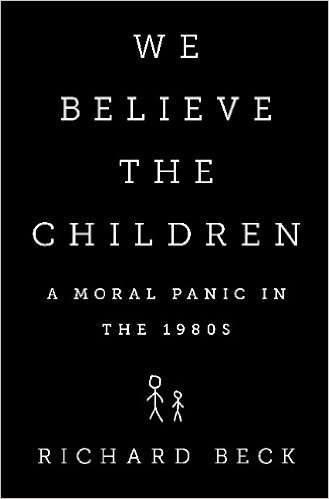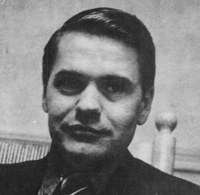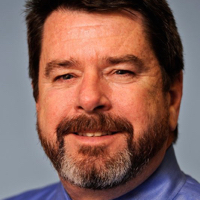Rascals case in brief
In the beginning, in 1989, more than 90 children at the Little Rascals Day Care Center in Edenton, North Carolina, accused a total of 20 adults with 429 instances of sexual abuse over a three-year period. It may have all begun with one parent’s complaint about punishment given her child.
Among the alleged perpetrators: the sheriff and mayor. But prosecutors would charge only Robin Byrum, Darlene Harris, Elizabeth “Betsy” Kelly, Robert “Bob” Kelly, Willard Scott Privott, Shelley Stone and Dawn Wilson – the Edenton 7.
Along with sodomy and beatings, allegations included a baby killed with a handgun, a child being hung upside down from a tree and being set on fire and countless other fantastic incidents involving spaceships, hot air balloons, pirate ships and trained sharks.
By the time prosecutors dropped the last charges in 1997, Little Rascals had become North Carolina’s longest and most costly criminal trial. Prosecutors kept defendants jailed in hopes at least one would turn against their supposed co-conspirators. Remarkably, none did. Another shameful record: Five defendants had to wait longer to face their accusers in court than anyone else in North Carolina history.
Between 1991 and 1997, Ofra Bikel produced three extraordinary episodes on the Little Rascals case for the PBS series “Frontline.” Although “Innocence Lost” did not deter prosecutors, it exposed their tactics and fostered nationwide skepticism and dismay.
With each passing year, the absurdity of the Little Rascals charges has become more obvious. But no admission of error has ever come from prosecutors, police, interviewers or parents. This site is devoted to the issues raised by this case.
On Facebook
Click for earlier Facebook posts archived on this site
Click to go to
Today’s random selection from the Little Rascals Day Care archives….
Click for earlier Facebook posts archived on this site
Click to go to
Today’s random selection from the Little Rascals Day Care archives….
At last, book lays bare ‘satanic ritual abuse’ era
 Aug. 10, 2015
Aug. 10, 2015
Since I undertook this blog in 2011, I’ve been waiting for a mass-market book that recalls the “satanic ritual abuse” day-care era with authority, insight and thoroughness.
“We Believe the Children: A Moral Panic in the 1980s” comes pretty darn close to meeting that standard. (I do wish author Richard Beck had addressed the significant post-panic contributions of Richard Noll and Allen Frances.)
I’ll be posting excerpts from the book and later an interview with Beck.
Meanwhile, I’ve been pleased to see the reviews in the news media – so far, all largely appreciative.
“…This book does a devil of a job correcting… all the lies and self-deceptions, so credulously believed in the 1980s….”
– From “Child Abuse Cases Endure as Lessons in Hysteria” by Mark Oppenheimer in The New York Times (Aug. 6)
“ ‘We Believe the Children’ should serve to remind us of the dangers of the ‘we must believe the victim’ mindset in the case of any criminal offense. A faith-based pursuit of justice can lead to a miscarriage of justice.”
– From “What Fueled the Child Sex Abuse Scandal That Never Was?” by Lizzie Crocker at the Daily Beast (Aug. 3)
“ ‘We Believe the Children’ reveals the various combinations of ignorance, venality, arrogance and zealotry that characterized the major players who fueled the moral panic.”
– From “A Very Model Moral Panic” by Carol Tavris in the Wall Street Journal (Aug. 7)
Here also is a radio interview with Beck and – inevitably – a response from witch-hunt denier Ross Cheit.
HB2 isn’t legislature’s first hysterical reaction

Daily Tar Heel, 1970
Charles Dunn
April 29, 2016
The damage was minimal compared with that caused by HB2, but the N.C. General Assembly in 1992 produced its own ludicrous overresponse to a nonexistent problem. It fell hard for the “satanic ritual abuse” allegations in the Little Rascals Day Care case.
Requiring SBI notification within 24 hours of any report of sexual abuse in a day-care setting was reasonable enough. But that was only the beginning.
According to the Associated Press:
“Law enforcement officials are teaming up with social services experts to investigate and more effectively prosecute child sexual abuse in North Carolina day-care facilities….
“State Bureau of Investigation Director Charles Dunn said… the goal is to train up to 300 individuals in the state’s largest cities.
“Under the protocol, agencies in counties would establish guidelines for interagency task forces. Each task force would include an investigative unit and a resource unit.
“The typical investigative unit would include a child protective services social worker, law enforcement officer, consultant from the state day-care licensing agency and an SBI agent.
“The resource unit might include medical personnel, SBI lab experts, mental health workers and representatives of the attorney general’s and local district attorney’s offices….”
Maybe this sprawling bureaucratic troop movement, frustrated in its original mission, could be reactivated to enforce HB2 in the state’s bathrooms…..
— My response to a post on HB2 at the North Carolina Criminal law blog (April 29)
![]()
A lack of reporters ‘sufficiently passionate to get at this story’?

thetennessean.com
Frank Daniels III
July 8, 2016
“As for an ‘investigative’ piece about the Kelly case that would get to the ‘truth,’ we will have to see if we have any staff members who are sufficiently passionate to get at this story….”
– From News & Observer executive editor Frank Daniels III’s reply (June 10, 1992) to a plea for coverage from Jane W. Duffield of the Committee to Support the Edenton Seven
Daniels’ predecessor, Claude Sitton, lamented later that “my greatest mistake (was) my failure as editor… to make sure we had a top-notch investigative reporter on the Little Rascals case.”
I’ve asked Daniels to share his own recollections of the paper’s coverage, but haven’t heard back.
![]()
Edenton Seven won’t be snapping selfies at marker ceremony
Dec. 31, 2014
“Dear Mr. Powell:
“At their meeting on December 16, the members of the North Carolina Highway Historical Marker Advisory Committee… voted unanimously not to approve a marker (in Edenton recognizing the Little Rascals Day Care case).
“Your nomination was among 17 on the agenda (only five met with approval)…. In short, the committee felt that the case was too recent – with too many people affected by it living in the area. They felt that much more time needed to pass before the subject could be judged by history and considered for a marker. One suggestion was that it might be considered 25 years after the deaths of those convicted…..”
– From a letter rejecting my application for a “history on a stick” marker for the Little Rascals case
I respect the committee’s reasoning, even though I doubt I’ll be around when it’s ready to reconsider – in what, 2075?











0 CommentsComment on Facebook